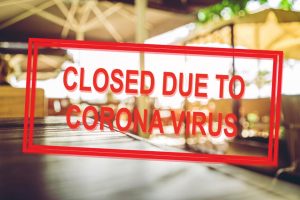 It is only natural that you want to take every precaution to protect your loved ones from getting sick from the COVID-19 virus. With different sources debating how long the virus can survive on various materials and surfaces, many are left wondering what precautions should be taken before purchasing food from various food vendors in Pittsburgh, PA. The current research has shown that there is no evidence that COVID-19 can be transmitted by contact with food or its packaging. The clearest risks have shown the most dangerous exposure comes from other people that are around you. Being vigilant about social distancing and using barrier devices like masks and gloves are still the most helpful ways to keep yourself safe. Likewise, washing your hands before and after touching or eating food is a much more effective way to mitigate the potential of spreading any viruses.
It is only natural that you want to take every precaution to protect your loved ones from getting sick from the COVID-19 virus. With different sources debating how long the virus can survive on various materials and surfaces, many are left wondering what precautions should be taken before purchasing food from various food vendors in Pittsburgh, PA. The current research has shown that there is no evidence that COVID-19 can be transmitted by contact with food or its packaging. The clearest risks have shown the most dangerous exposure comes from other people that are around you. Being vigilant about social distancing and using barrier devices like masks and gloves are still the most helpful ways to keep yourself safe. Likewise, washing your hands before and after touching or eating food is a much more effective way to mitigate the potential of spreading any viruses.
The Risks of Washing
Everyone has seen the early recommendation of washing all your purchased food items in the sink. However, washing vegetables, fruits, and packages all in the same sink may well create more risks than benefits. When you wash unpackaged items (like vegetables and fruits) in the same sink as packaged foods, you risk cross-contamination. Keep in mind that the virus does not last long on packaged items (which were likely handled with gloves), so you can skip washing those. On the other hand, the US Food and Drug Administration does recommend rinsing fruits and vegetables as usual. However, you should only use cold water, with no soap or disinfectants. Using any cleaning product on food can cause nausea, vomiting, and diarrhea, so it is best to avoid doing so entirely.
A New Normal?
From this point forward, when you return home after visiting a food vendor in Pittsburgh, PA, wash your hands, put away your purchased food items, then wash your hands again. Before you eat, wash your hands again. This method has proven to be much more beneficial in helping people avoid COVID-19 and many other viruses.



